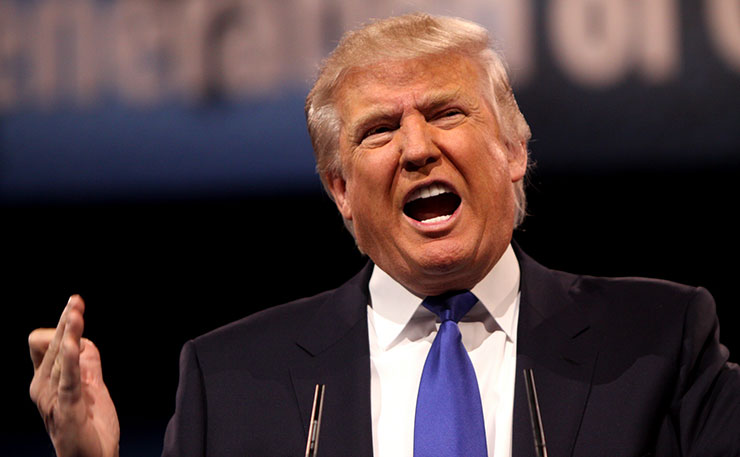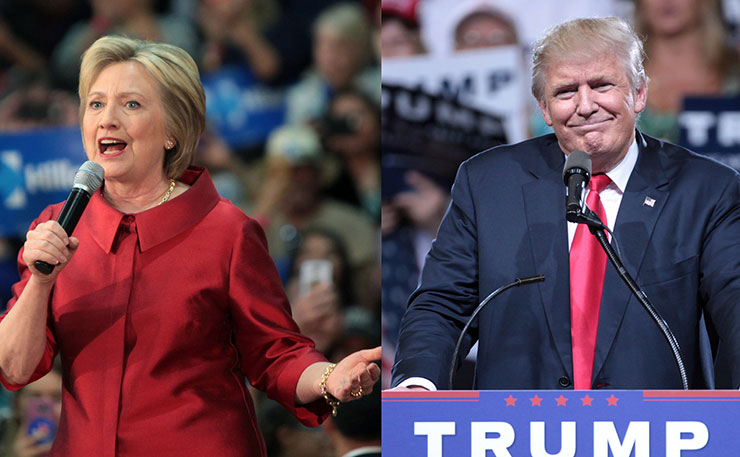Parties of the left will continue to struggle for relevance unless they re-focus their efforts on job creation and economic equality, writes Professor Andrew Scott.
The dominant politics in most Western nations for more than 30 years has been a combination of economic liberalism with a partially contested social conservativism. Donald Trump represents a threat to this in part because he has rejected some aspects of economic liberalism in becoming US President, notably ‘free trade’ agreements.
This policy position by Trump is despite his own massive personal profiting from property speculation and tax avoidance, to add to the considerable family wealth which he inherited: i.e. despite his personifying what many regard as the ugly excesses of American economic liberalism, and the inequalities that has produced.
The fact that the very belated introduction of some very basic public health care to America is one of the very first things which Trump is trying to abolish, indicates that his claimed concern for ordinary people is selective and fraudulent.
However, one of the other first things which Trump has done as President is to abandon the latest planned international ‘free trade’ agreement, the TPP, in the name of looking after American workers.

This is a clever move which continues a crucial element of his electoral success, namely his questioning current notions of ‘free trade’ in ways which the ascendant groups in many Left-of-centre parties had stopped doing.
Bernie Sanders argued during the presidential election campaign (on the basis of research by the Economic Policy Institute in Washington, DC) that a major previous ‘free trade’ agreement which America made – NAFTA, which Bill Clinton signed and Hillary Clinton had supported – cost more than 850,000 American jobs.
Sanders represented a popular alternative which few on the Left over recent decades have been prepared to espouse: namely social democratic economic policies envisaging a role for government to reduce economic inequalities, combined with progressive social policies. That combination, if further adopted now, would win back electoral support for Left-of-centre parties.
Sanders explained Trump’s eventual election victory over Hillary Clinton in November 2016 as happening because:
Trump tapped into the anger of a declining middle class that is sick and tired of establishment economics, establishment politics and the establishment media. People are tired of working longer hours for lower wages, of seeing decent paying jobs go to China and other low-wage countries, of billionaires not paying any federal income taxes and of not being able to afford a college education for their kids – all while the very rich become much richer.
To the degree that Mr Trump is serious about pursuing policies that improve the lives of working families in this country, I and other progressives are prepared to work with him. To the degree that he pursues racist, sexist, xenophobic and anti-environment policies, we will vigorously oppose him.
Trump won because Hillary Clinton was, unfortunately, too much of an insider, corporate establishment candidate to gain the support of the victims of the gross economic inequality which has arisen in America. Brexit – Britain’s earlier decision (in June 2016) to leave the European Union (EU) – occurred because of similar grievances, and electoral failings by the nominal Left-of-centre party there and its present and past leaders. In both Britain’s decision to leave the EU, and Trump’s election as US President, the decisive factor in creating a majority of referendum – or electoral college – votes was the desertion of voters in economically hard-hit working-class regions from the Left-of-centre party which they used to support.

In America those crucial desertions from the Democratic Party were in the ‘rust-belt’ States of Pennsylvania, Michigan and Wisconsin. There was also a low overall turnout for Hillary Clinton compared to that which Barack Obama achieved in his two election victories, due to the comparative lack of enthusiasm for her as a candidate.
The words uttered in response to Trump’s election by Germany’s Chancellor Angela Merkel – who in late 2015 adopted courageous policies to accept huge numbers of asylum seekers from the brutal regime in Syria – were similar to those of Bernie Sanders, and they were very carefully chosen. She said that:
Germany and America are connected by values of democracy, freedom and respect for the law and the dignity of man, independent of origin, skin color, religion, gender, sexual orientation or political views…I offer the next President of the United States close cooperation on the basis of these values.
A major new English language biography of Chancellor Merkel – Angela Merkel: Europe’s Most Influential Leader – gives insights to why the leader of a nominally ‘conservative’ political party would take such a radical decision today – to take in one million asylum seekers – compared to leaders of parties on the Right in other nations.
Among these is that at the age of 30, Angela Merkel was living as an illegal squatter in East Berlin in the totalitarian former East Germany following the end of her first marriage, on the modest stipend of a graduate research science student. Further, her father was a Lutheran clergyman who neither approved of nor actively opposed the Communist regime but whose politics were social democratic – to the point that the biographer finds that the easiest way to describe them is as being similar to the politics of Bernie Sanders.

Merkel was certainly positive about Ronald Reagan as the US leader who helped end Communism in the Soviet Union and Eastern Europe by espousing the cause of political freedom. However, her entering the CDU was partly because it was that party under Helmet Kohl which seized the opportunity to support German reunification, whereas the Social Democratic Party (SPD) mistakenly hesitated, despite the urgings of its greatest figure, another leading moral German Chancellor, Willy Brandt.
Further, the SPD has, since the Second World War, vitally helped to shape the politics of Germany in a humanitarian direction, which has contributed to that nation’s CDU party supporting inclusive ‘social market’ policies and a clear role for government in setting the rules for the economy.
Merkel is an example of a leader who uses her authority and popularity to take a morally correct and courageous decision and who seeks to then take people with her in support of that policy.
Merkel, though the leader of a nominally conservative political party, in her blending of ‘social market’ economic policies with social liberalism, is now more radical than many leaders of nominal Left-of-centre parties in many other countries.
Donald Trump and other political aspirants like him in those other countries, meanwhile, will remain popular with a crucial former Left constituency until the Left-of-centre parties return to their traditionally strong focus on jobs and economic equality.
Donate To New Matilda
New Matilda is a small, independent media outlet. We survive through reader contributions, and never losing a lawsuit. If you got something from this article, giving something back helps us to continue speaking truth to power. Every little bit counts.





